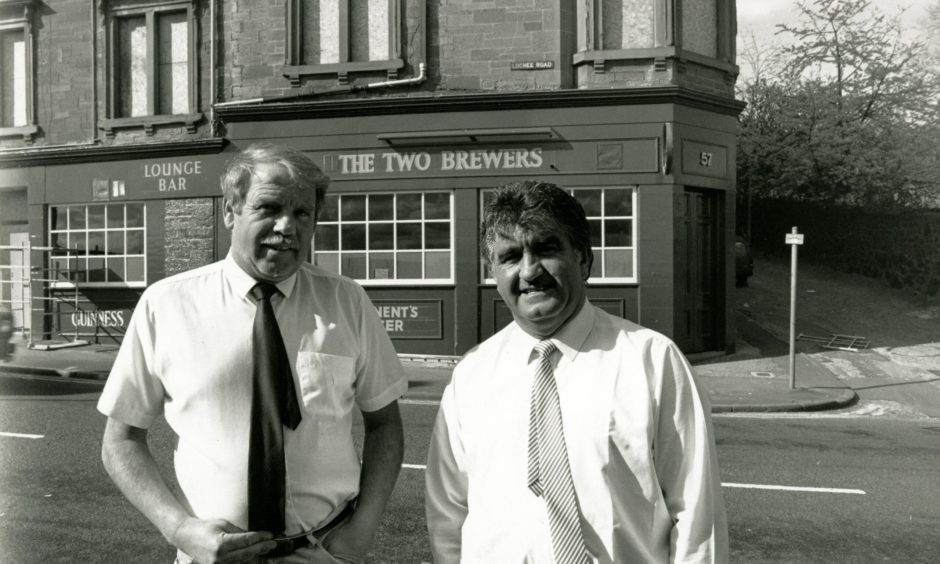
Centuries of history came crashing down when one of Dundee’s oldest pubs was turned to rubble 30 years ago.
The Pleasance Bar on Lochee Road dated back to at least 1735.
The name is still commemorated in the street name of Lower Pleasance and meant the gardens of a great home, which, in this case, was Dudhope Castle.
The bar was originally the retail unit for the Pleasance Brewery across the road.
The brewery was later bought by William Ballingall in 1844.
Ballingall’s still produced beer in the town in living memory.
The Pleasance Bar was conveniently located.
Lochee prospered during jute glory years
Camperdown Works in Lochee, owned by the Cox Brothers, was for a long time Europe’s largest jute mill and had its own railway line.
When the jute trade was busy, Lochee prospered.
By 1900, Camperdown Works employed more than 5,000 people and was one of Britain’s greatest industrial complexes.
In the First World War, drink was considered a greater enemy than the Germans. Strict licensing laws were imposed and hours drastically reduced.
The centuries-old pub survived.
Drinking hours in 1923 were from 10am to 2pm and 5pm to 9pm from Monday to Friday.
Saturday opening was 10am to 12pm and 3pm to 9pm.
The pub changed hands several times over the following years.
James Gellatly became the licence holder in April 1943.
Dundee Magistrates heard he was formerly the owner of the White Horse Hotel in Kirriemuir where his premises required “considerable police supervision”.
He was warned the certificate would not be renewed if any complaint was made by the chief constable regarding the conduct of the house in the next 12 months.
Mr Gellatly was there until 1947.
Buffaloes application hit the wrong note at The Pleasance Bar
In 1948, licence holder William Butchart requested permission for the Royal and Ancient Order of Buffaloes to use the Pleasance Bar for meetings.
They had secret knocks, signs and codewords.
The Buffs, as they were known, wanted the use of the rooms for meetings on Thursday nights and singing to the accompaniment of a piano accordion.
The accordion would be used for the opening hymn and the National Anthem to close.
Musical instruments in licensed premises were frowned upon by magistrates.
The application was rejected.
Pub culture changed significantly in the 1950s.
The Pleasance Bar was hit with extensive flooding in September 1965.
The water level reached four feet from the ceiling in the cellar.
Space Invaders came to The Pleasance Bar in 1980
As the city was redeveloped in the 1960s, 1970s and 1980s, many of the older pubs were lost to the wrecking ball.
The Pleasance Bar remained when Ballingall’s closed in 1968.
In 1980 the sounds of puggy machines were joined by the explosions and beeps of Space Invaders in the Pleasance Bar in pursuit of younger customers.
The object of the game was to save humanity at 20p a throw.
A crash was inevitable.
Space Invaders was beaten off by the recession.
Dominoes and darts were the main sports played in the pub.
There was live music on Saturday night in the lounge in 1986.
The weekend attraction was 50p vodka and “sing-a-long with Stevie”.
The Pleasance Bar appeared in the Evening Telegraph letters page in July 1986.
“While walking up Dundee’s Lochee Road past the Pleasance Bar, I was blinded by the sun and walked straight into a ‘No Entry’ sign,” said Annoyed Lochee Road User.
“This could have resulted in the loss of an eye.
“Fortunately, I have only a slight scar and bruising.”
Did readers swallow the “blinded by the sun” excuse or were they more likely to see a smoking gun shaped like an empty shot glass?
It was 50p a nip at Dundee pub
There was a “cider party night” including a pub quiz in September 1986.
Cider was 70p a pint all day.
In October 1986 there was a Halloween party with a prize for the best outfit.
They didn’t even need an excuse like a special occasion or celebration.
In December 1986 a “just for the fun of it” party night from 7pm to midnight.
Vodka was 50p all night.
Mine host Edward Brown was also chairman of the British Beer Mat Collectors’ Society, whose first Scottish meeting was held at the Marryat Hall in August 1986.
The world’s biggest beer mat was commissioned by Drybrough brewery to mark the occasion.
It was auctioned off afterwards for Guide Dogs for the Blind and Mr Brown got the Dundee United squad to sign it.
The pride of his collection was the first of only two beer mats produced by the Ballingall’s brewery, which was opposite the Pleasance Bar before closing in 1968.
It was a real collector’s item.
He said: “Mine cost me a bit but, ironically, I was speaking to a guy who had been the brewery’s transport manager who had a whole unopened packet of them in his shed.
“He said I could have them for nothing as they were no use to him but when he looked for them he found his wife had had a clear-out and binned the lot.”
A new name and new owners for The Pleasance Bar
There was live music from Pete Goldie on a Thursday night in 1988.
Fancy a double vodka? £1.20 was the cost.
In 1989 the pub opened from 4pm to midnight from Monday to Thursday.
Friday and Saturday was 12-12 and Sunday 7.30pm-11pm.
A pint was 90p.
There was a change of name in April 1990 and the Pleasance Bar became Two Brewers after being taken over by Ed McHugh and Rab Adam.
Both partners were experienced in the licensed trade.
Ed was on holiday in South Africa when he saw a pub called the Two Brewers.
The name was already in his mind when he and Rab decided to start the business.
It was also a nod to the two brewers that held sway over the premises during its lifetime – the Pleasance Brewery and Ballingall’s.
Home-made soup was a speciality at The Two Brewers
An Evening Telegraph advertising feature said the pub was opening with a “whole new look, entirely new management, and a whole new personality”.
The pub was given a fresh lick of paint including dark red on the ceiling.
The traditional woodwork was retained behind the bar.
On tap was McEwan’s 80 Shilling, Tennent’s Lager and Tennent’s Special.
Guinness and cider were also on draught while bottled beers included Beck’s, Budweiser, Grolsch, Holsten Pils and Red Stripe.
Quarter gills was the standard measure for spirits.
There was also wine by the glass.
Opening weekend was £1 a pint and 80p for a quarter gill.
Bar food was also available including baked potatoes and toasties.
Home made soup was a speciality.
Karaoke was introduced on a Thursday night.
Darts and dominoes teams would play every week in the league.
Pub was flattened in 1994
The Two Brewers fell victim to the rapid march of progress in March 1994.
The pub was the subject of a compulsory purchase order by Tayside Regional Council and was demolished after 259 years, along with a block of tenements.
“From 10pm until midnight it was all free,” said Mr McAdam.
“It was the least we could do as everyone was very loyal.”
Sadly, the pub called last orders early.
It was pulled down for road widening that never took place.
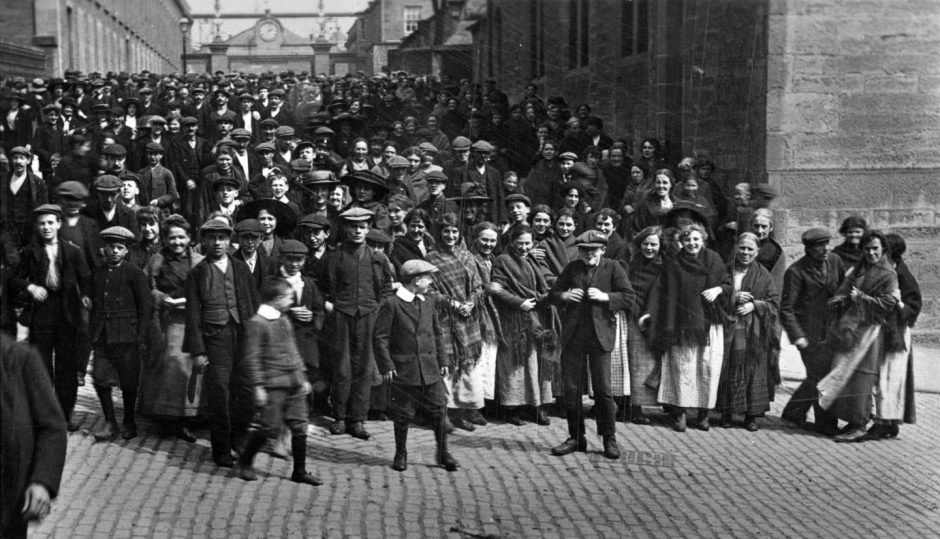
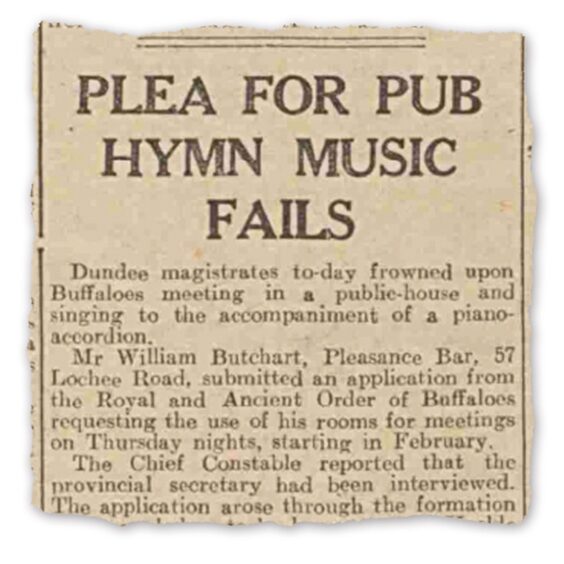
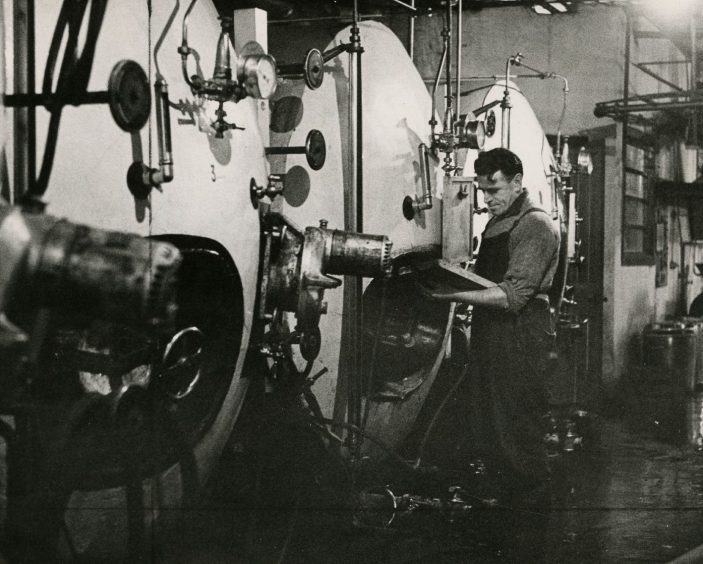
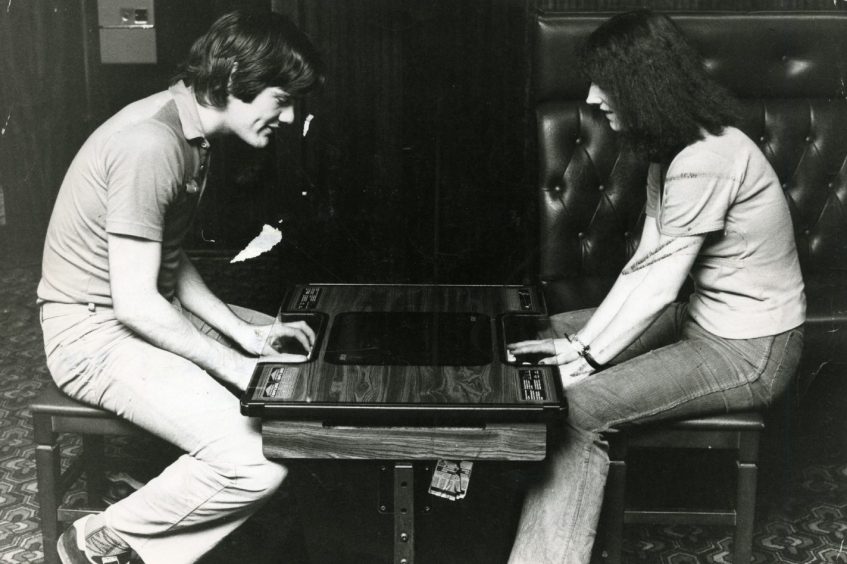
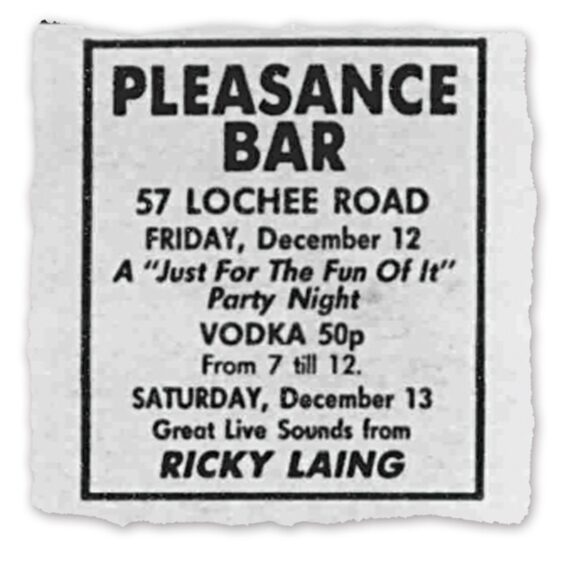
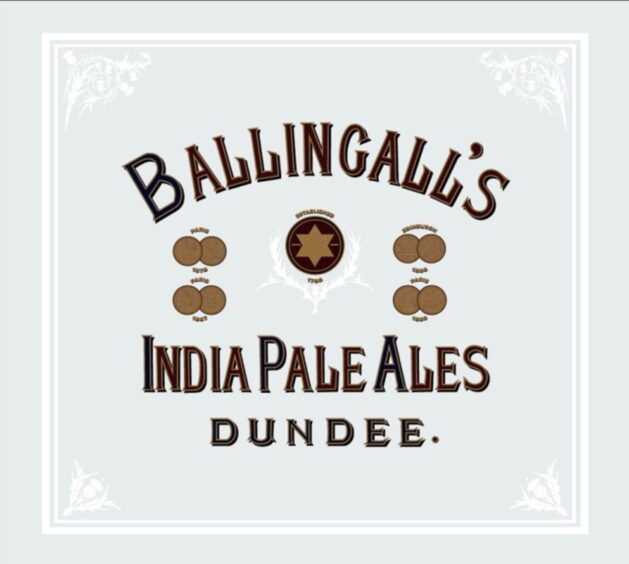
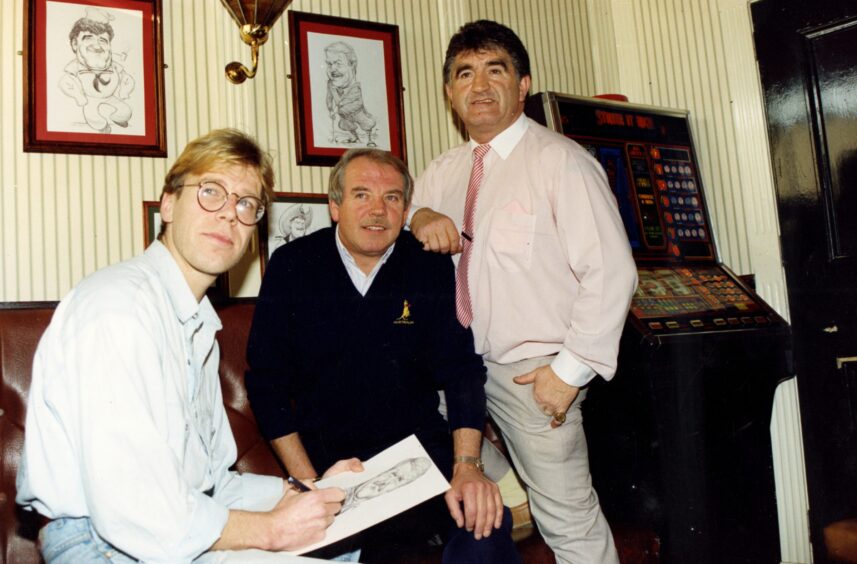
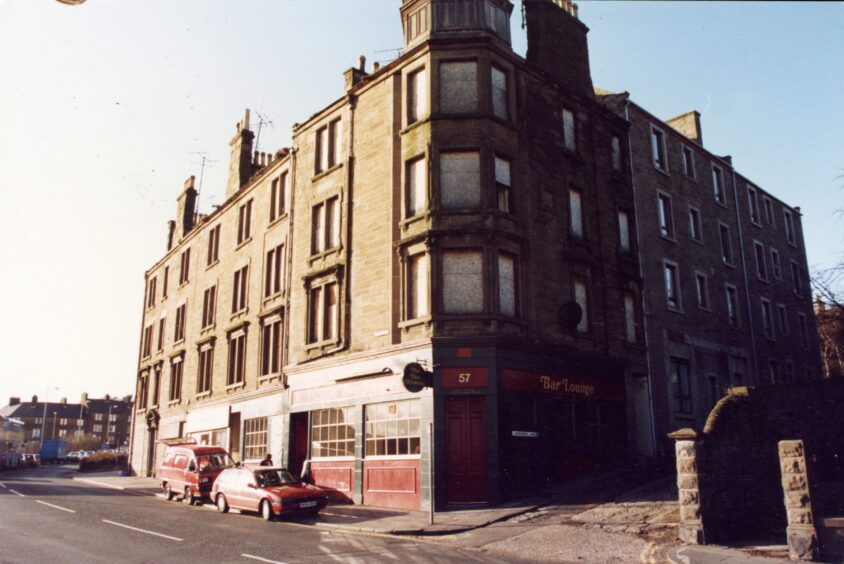
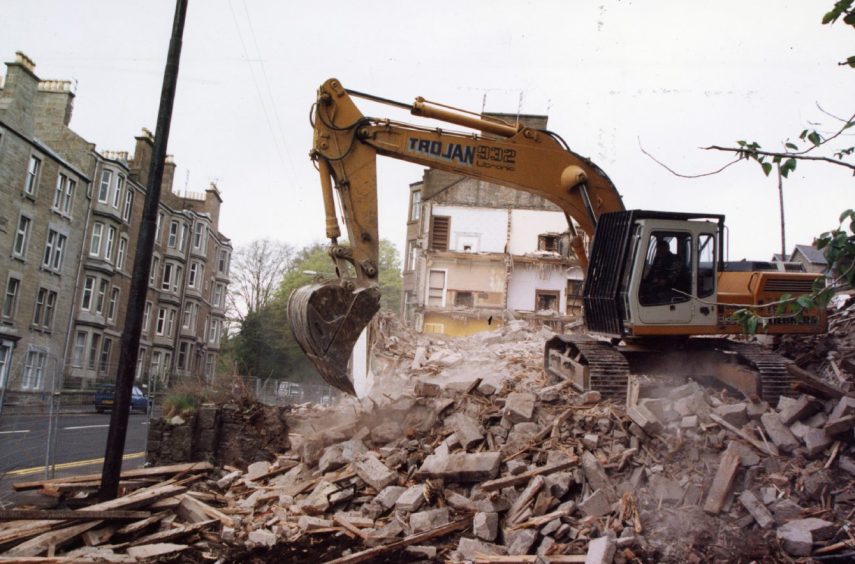
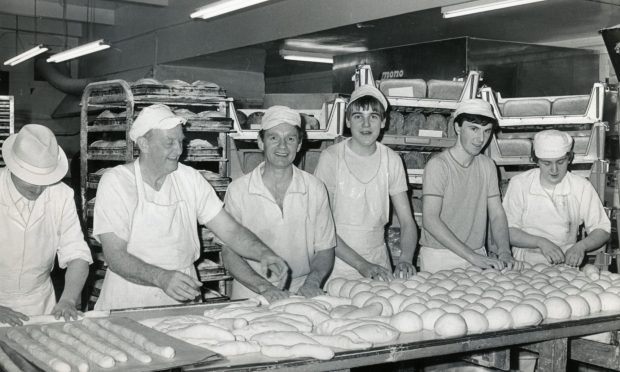
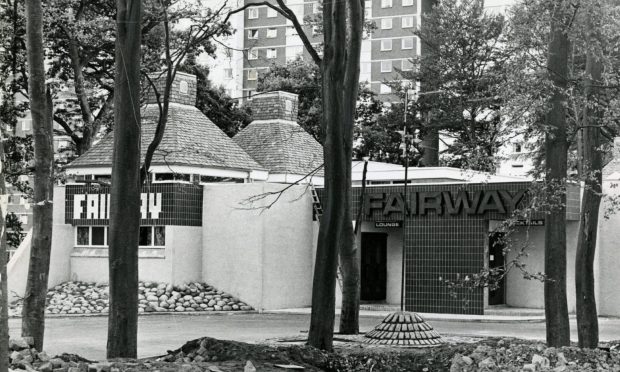
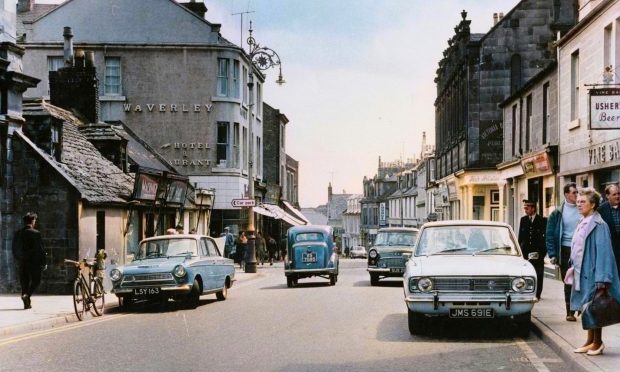
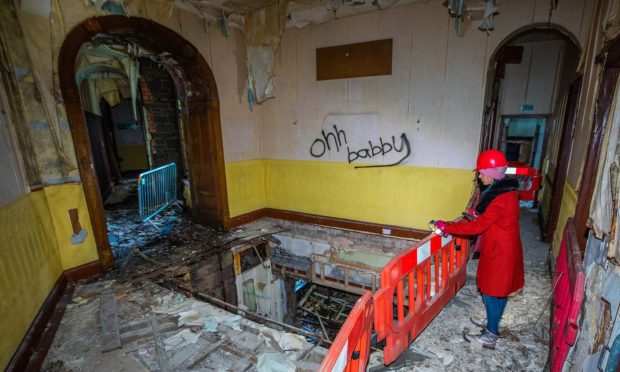
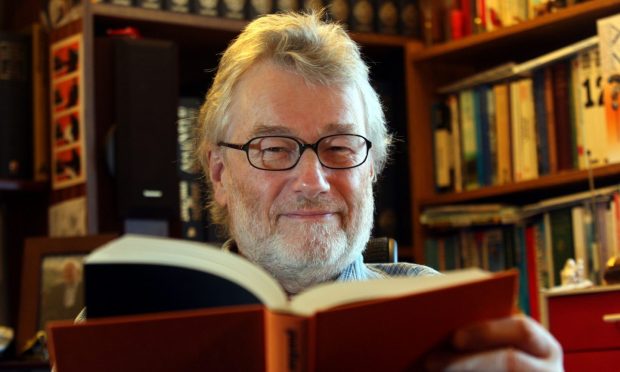
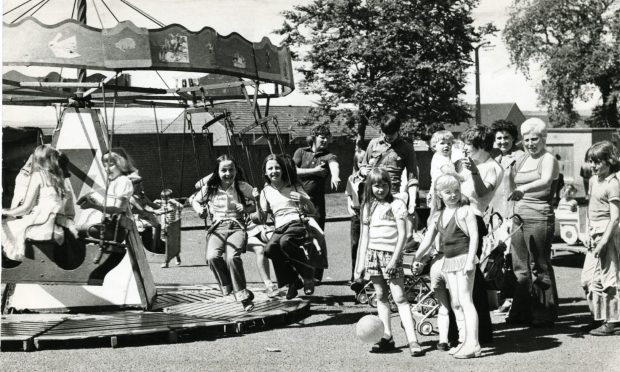
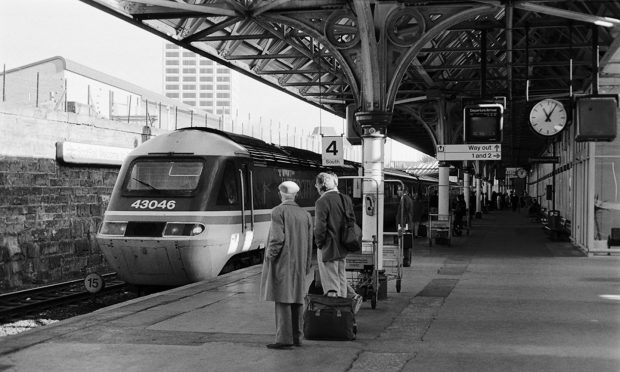
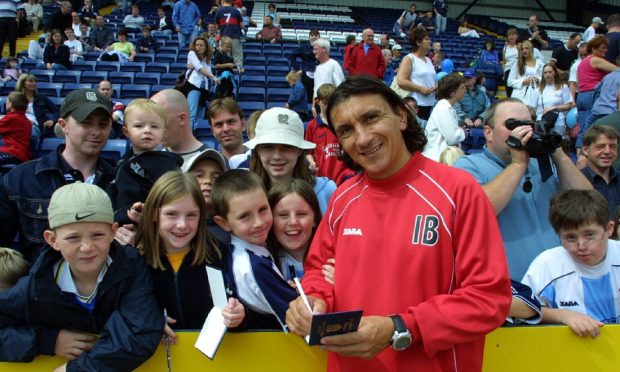
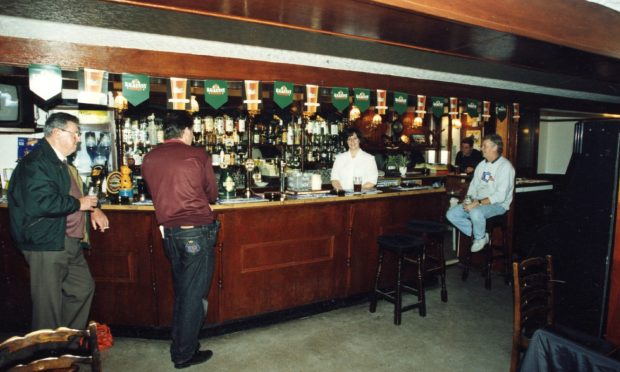
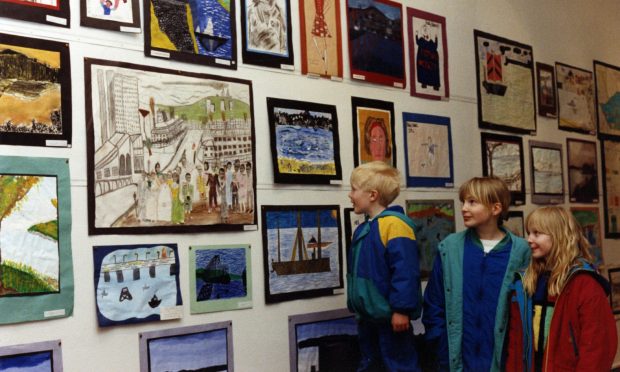
Conversation